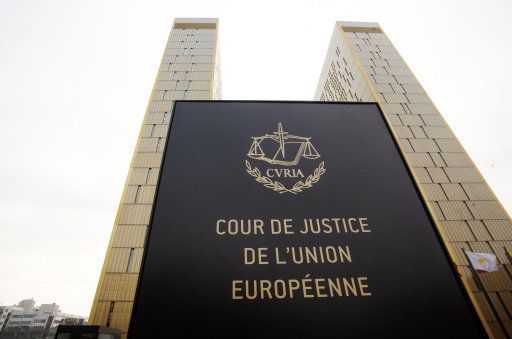Last week, the government published a position paper on the European Court of Justice (ECJ) and possible alternatives. It begins by saying that:
“In leaving the European Union, we will bring about an end to the direct jurisdiction of the Court of Justice."
What does that actually mean and what will it involve for businesses and individuals in the UK?
The main function of the ECJ is to answer questions about EU law, and how it should be interpreted and applied. These questions constantly arise in the courts of the Member States in cases brought by individuals, companies and firms. If in doubt, the national court can ask the ECJ to say what the law is. UK courts did so in 23 cases in 2016.
The sort of questions that are put to the ECJ range over a myriad of different subjects. Many of them are technical questions relating to the functioning of the single market and the customs union: trade marks, environmental protection, customs duties, pharmaceutical standards, and food safety.
But many of the cases relate to the personal problems of individuals who seek the protection of EU law: discrimination on grounds of gender or race, workers’ rights, family rights, social security, access to education and health care, compensation for cancelled flights, protection against unfair contracts, arrest warrants, and abduction of children. As a wise old judge of the Court observed, “The migrant worker is not regarded by Community law as a mere source of labour but is viewed as a human being.”
When the UK leaves the EU, British firms will still want to sell their products in Europe. They will have to decide whether to make two ranges of products—one for the UK market and one for the European market—or just one. In the latter case, they will still have to comply with EU standards and the ECJ will still be saying what those standards are.
British companies will still send their employees to other European countries as directors, managers, sales representatives or technical staff. They will want to live there with their family, to send their children to school and to have health care. Some of them will find themselves on the wrong side of the local bureaucrats. Some of them, sadly, will separate and they will need to know which courts will grant a divorce and decide on the financial settlement, as well as custody of children and problems of cross-frontier access.
Companies operating in the EU will still have to comply with the rules against unfair competition. They may be fined very large sums if they don’t (as Microsoft and Google have discovered), and they may well want to go to the ECJ for judicial review.
"If there is to be a new court, joint committee or arbitral tribunal, how much will it cost and who will pay?"When the ECJ has a case before it, the governments of all the Member States can argue for their own interpretation of EU law. The UK government does so often. The parties’ lawyers (or the parties themselves) can come to the Court to argue their point of view.
When the UK leaves the EU, UK courts will no longer be able to put questions to the Court; the UK government will no longer be able to argue its point of view; and UK parties will no longer be able to be represented by UK lawyers (unless they are also qualified in an EU State, which explains why so many British barristers are joining the Irish Bar!)
Yet we cannot altogether “escape” the jurisdiction of the ECJ. And who is to decide, if not the ECJ?
The UK government suggests various types of joint committee or arbitral tribunals to “resolve disputes,” as if the disputes to be resolved would just be between the UK and the EU. But real people and real businesses need to know too. The UK government says so itself in another position paper, also published last week with rather less publicity:
“It is vital for UK and EU consumers, citizens, families and businesses, that there are coherent common rules to govern interactions between legal systems. In particular, citizens and businesses need to have continuing confidence as they interact across borders about which country’s courts would deal with any dispute, which laws would apply, and know that judgments and orders obtained will be recognised and enforced in neighbouring countries, as is the case now"
That, of course, is what the ECJ provides at the moment. If there is to be a new court, joint committee or arbitral tribunal, how much will it cost and who will pay? Who will be the members? Will they be full-time? What back-up staff will they have? Will businesses and individuals be able to appear before them? How quickly will they produce answers?
There is, of course, another court that already exists, the EFTA Court, which provides interpretations of the rules of the Single Market for Norway, Iceland and Liechtenstein. They are members of the European Economic Area (EEA). The court employs a full-time staff of about 20: if the UK joined, bringing with it many more problems to be resolved, it would probably need a full-time staff of about 50. This would provide a solution if, as the Labour leadership now proposes, the UK were to remain (at least for a time) in the Single Market.
When the UK leaves the EU, we will not float off into the middle of the Atlantic. Thousands of real people will still move back and forward between the UK and the EU27 and do business in each others’ countries. They will need to know what their rights are and to have them enforced. Who is to decide? We need to know—soon.












